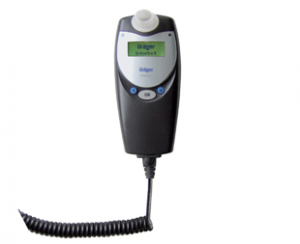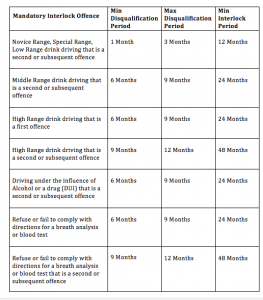New Drink Driving Laws have been recently passed by the NSW State Government. The Road Transport Amendment (Mandatory Alcohol Interlock Program) Bill 2014 introduces a Mandatory Interlock Program for offenders convicted of repeat and serious drink driving offences. The legislation is also aimed at licence holders who repeatedly exceed their demerit point threshold.
This legislation, to commence on 1 February, 2015 is an excellent program designed to teach people not to drink and drive.
Initially, when the Interlock program was introduced in 2003, Magistrates were hesitant to order such. Over the years, there has been a gradual softening toward their use, however, there is still a hesitancy by Magistrates to order them for drink driving.
 This legislation, now makes it MANDATORY under certain circumstances.
This legislation, now makes it MANDATORY under certain circumstances.
WHAT IS AN INTERLOCK DEVICE?
An interlock device is a breath testing instrument which is connected to the electrical system of the motor vehicle. In order for the engine to start, you must pass the breath test. Such instruments must be installed by an approved installer.
WHICH OFFENDERS ARE ELIGIBLE
If a person commits a “mandatory interlock offence” then the Court can either make an interlock order or alternatively an exemption order.
A mandatory interlock offence is simply a drink driving offence (novice range, special range, low range, middle range, high range, DUI, refuse breath analysis or blood sample).
The “mandatory” effect applies to second or subsequent drink driving offenders across the board, however, it also includes first time offenders of high range drink driving, and refuse breath analysis or blood test.
A second or subsequent offence in simple terms, occurs where a person has been convicted of a second drink driving offence within a period of 5 years.
WHAT HAPPENS IF I DON’T TAKE UP THE INTERLOCK PROGRAM
If a Court makes a Mandatory Interlock Order in respect of a person and that person doesn’t enrol in the interlock program at the expiry of their disqualification period, then that person remains disqualified from holding a licence (other than an interlock licence) for a period of 5 years. Take for example, a second time low range drink driving offender, where a disqualification of 12 months is ordered, then that person, not having enrolled in the interlock program cannot obtain a licence at the completion of that 12 month period (as is the case now). He or she must wait another 4 years before the RMS will issue a licence. Such person can, of course, later enrol in the interlock program and curtail that lengthy period.
INTERLOCK EXEMPTION ORDERS
Although a person has committed a Mandatory Interlock Offence, the court may exempt such person from the interlock program.
However, for a magistrate to do so, the onus is on the accused to prove to the Court’s satisfaction that the person doesn’t have access to a vehicle into which such device can be installed. Alternatively, the person has a medical condition which prevents him/her from providing sufficient breath into the device.
Inability to afford such device, is not an acceptable reason and the Authority will provide financial assistance where necessary.
An interlock licence holder is defined as a “Novice Licence Holder”. Clearly this means that even though the person holds an interlock licence, they must have zero alcohol in their blood for the duration of the interlock licence.
DEMERIT POINT SCHEME
The new amendments have implications for all of us apart from drink driving offences.
If a person holding an unrestricted licence, incurs the threshold number of demerit points twice within a period of 5 years, then the Authority may require that person to undertake a driver knowledge test or a driver education course or both.
P1 and P2 driver licence holders who reach the threshold number of demerit points twice within a period of 5 years may be required to undergo a further driver knowledge test.






